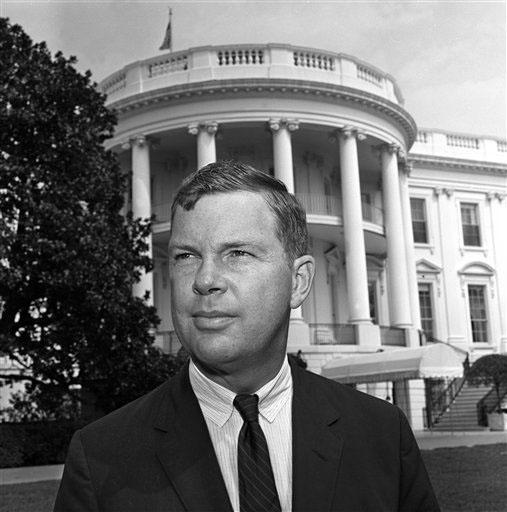Everything that’s been written lately about the legendary New York Times former bureau chief and columnist Tom Wicker leads with his once-in-a-lifetime on-the-spot coverage of the assassination of John F. Kennedy in 1963.
For Wicker, who died Friday at the age of 85 of an apparent heart attack, everything flowed into that moment, and everything that happened after flowed from it.
Probably for good reasons. Wicker happened to be the only Times reporter in Dallas that day, but, scrambling to make sense out of one of the most dramatically chaotic events in American history, dictated from notes he scribbled on programs. Wicker, undaunted and calm, did more than report, he provided stirring and moving descriptions of what he saw, including a remarkable portrait of the First Lady.
It was a life and game changer for Wicker. A year later, the rising young star from North Carolina was named Washington Bureau Chief of the New York Times, succeeding NYT icon James Reston, who had hired him. The move precipitated one of those in-house Times battles that happen periodically at that paper, but in the end, Wicker remained, became an associate editor of the Times and wrote his own column “In the Nation,” a proudly opinionated political column which he continued until 1991, when he retired to Vermont.
He was considered a classic liberal, which he wasn’t, but he antagonized Richard Nixon so much that he was one of many media types (and celebrities) who made the president’s infamous enemies list. During Watergate days, he strongly called for Nixon’s impeachment. But he also wrote a much more sympathetic—and probably more balanced – book called “One of Us: Richard Nixon and the American Dream,” the book noted the president’s accomplishments, which were significant, and his flawed humanity.
Wicker gained more fame when he decided as a journalist present there to act as something of a negotiator at the Attica Prison Revolt of 1961 which ended tragically in violence and many deaths. He wrote a prize-winning book on the subject, “A Time to Die: The Attica Prison Revolt,” which became a powerful made for television movie.
Wicker was something new — the journalist-reporter with a view that leaked like blood into much of his writing, purposefully — involved, personal, which he not only practiced but advocated. His writing on politics had pungent flavors to it.
But he was also something old—he was a member of that generation of southern creative types who grew to maturity during the civil rights struggles and were deeply concerned about the issue of race in America, a subject they wrote about, painted, or made music of, from Welty to Styron to earlier Faulkner. He grew up poor, in a place called—can’t be more telling—Hamlet, N.C. He once edited a small-town paper called the Sandhill Citizen in Aberdeen, N.C.
But this small-town southern boy rose to the top of the heap at one of the greatest newspapers in America, graduated from the University of North Carolina, had a Nieman Fellowship at Harvard and was a fellow at the Kennedy School of Government.
He wrote 20 books, including two notable works of fiction, “Facing the Lions,” a big, detailed, and stirring book about a presidential campaign and “Unto This Hour,” a terrific, very can’t-put-down yarn about the Battle of Bull Run.


